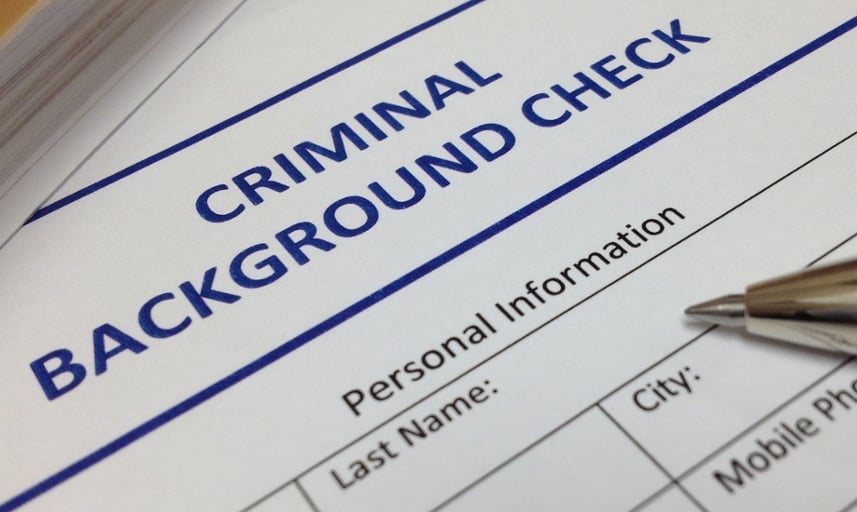
On October 1st, the new Fair Chance Act (FCA) regulations took effect in California, creating changes to the background check and criminal history review process for all California employers. The FCA is meant to give prospective employees an equal opportunity to an open position. The law prohibits employers with five or more employees in California from asking candidates about past convictions until a conditional offer has been made. In addition, employers cannot include questions about an applicant’s criminal record in their applications or restrict anyone from applying.
The Purpose of the Act
The Fair Chance Act is a recent law that has made waves in California. It is intended to level the playing field for job seekers with criminal records and create more fair hiring practices. By prohibiting employers from asking about criminal history early in the hiring process, this act gives applicants the chance to showcase their skills and potential without being immediately disqualified due to their past.
Previous Fair Chance Act
The previous California Fair Chance Act, which went into effect in 2018, prohibits employers from asking candidates about their criminal history until after a conditional offer has been made. If the candidate's criminal history is worrisome to the employer, the company must initiate an individualized assessment to gauge if the applicant’s criminal history will have a direct and adverse impact on the responsibilities of the job that will justify denying the candidate the job. If the employer decides that the candidate should not be hired for the position after the assessment, they must send a written letter, also known as a pre-adverse action letter, to the individual. The individual has 5 days to respond with additional information, such as efforts to rehabilitate or mitigate circumstances. The employer then must consider new information and conduct a reassessment. If the employer still does not think the applicant is suitable for the position, they must provide a written notice to the applicant of their decision.
What is New about the Fair Chance Act
While the new law has the same phrasing as the previous Fair Chance Act, the terms have gained a new sense of meaning. The term applicant is now referred to any employee who undergoes a background check due to a change in ownership, management, and more. The term employer is now considered for agents, staffing agencies, and other entities who are submitting candidates.
Employers also cannot mention in their job postings or applications that they are not considering people with a criminal record for the position.
Even if the candidate offers information before a conditional offer, the law states that the employer still cannot use that information for consideration for the position.
The new law provides a list of sub-factors for employers to consider for an individualized assessment. The list includes:
- Whether the harm was to property or people.
- The degree of the harm (e.g., amount of loss in theft).
- The permanence of the harm.
- The context in which the offense occurred.
- Whether a disability contributed to the offense or conduct
- Whether trauma, domestic or dating violence, sexual assault, stalking, human trafficking, duress, or other similar factors contributed to the offense or conduct the age of the applicant when the conduct occurred.
- The amount of time that has passed since the conduct underlying the conviction, which may significantly predate the conviction itself.
- The amount of time that has passed since the applicant's release from incarceration.
- The specific duties of the job, including whether the context in which the conviction occurred is likely to arise in the workplace and whether the type or degree of harm that resulted from the conviction is likely to occur in the workplace.
A more defined waiting period has also been added to the California Fair Chance Act. After an employer has sent a pre-adverse action letter, they must wait at least five business days from the individual’s receipt of the letter before acting and making a final decision. However, if an employer cannot provide confirmation of receipt, then the pre-adverse action letter is considered to have been received until:
- Two business days after sending, if sent by email
- Five calendar days after mailing, if mailed within California
- Ten calendar days, after mailing, if mailed outside of California
- Twenty calendar days, after mailing, if mailed outside of the United States
Only after the preceding waiting periods have passed can an Employer make a final decision.
How the Act Affects Employers in California
California employers with over five employees, are now prohibited from asking about an applicant's criminal history early in the hiring process. This means employers must update their hiring practices and conduct a more thorough background check and criminal history review process if they are not already following the FCA guidelines. They may need to make edits to their application to remove questions about criminal history, as well as hiring ads and postings since job postings cannot include a discretion for people with a criminal history. Changes should also include coordinating with any third-party services enlisted to assist with this process.
How AgHires Can Help
AgHires stays up to date on changes to the labor market in the agriculture industry to ensure we know how to best serve our clients and candidates. AgHires offers a variety of services across the United States and Canada from job advertising to full-service recruiting. Contact us today to learn more about how we can help you with your hiring needs and finding the best talent to fill your open jobs.






